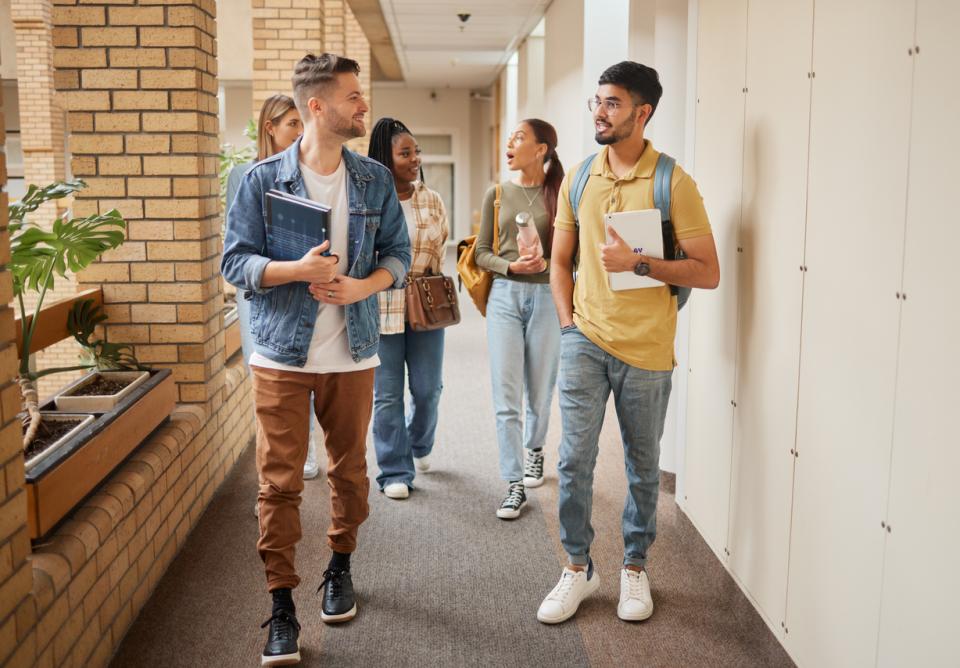A first-generation student’s path through higher education is marked with challenges and triumphs. I speak from my own experience as a former first-generation student; this topic holds a deep and personal significance. In this article, I share insights from my own journey to shed light on the resilience that defines our collective experience. Understanding the hurdles these students face can pave the way for a more inclusive campus environment.
As a first-generation student, I faced obstacles such as academic jargon, finances and imposter syndrome. Many of us must also balance part-time jobs, family responsibilities and coursework. These challenges mould us into resilient individuals, and our stories illustrate that resilience isn’t solely about overcoming obstacles; it's about thriving in spite of them.
Cultivating a supportive environment
Recognising the significance of a supportive academic environment for first-generation students is crucial. We can actively contribute to this by acknowledging and addressing their unique needs. As someone who has benefited from mentorship, I encourage establishing programmes that connect first-generation students with faculty members from similar backgrounds. Here are some tips for those seeking to implement effective mentorship programmes:
- Seek faculty members who empathise with the challenges faced by first-generation students and are eager to serve as mentors
- Develop clear objectives and roles for mentors and mentees
- Provide mentors with training and ongoing support, including workshops on effective mentoring techniques
- Consider pairing first-generation students with peer mentors who have successfully navigated similar challenges
- Encourage mentors to hold regular meetings with mentees to monitor academic progress and address concerns
- Organise events that bring mentors, mentees and other first-generation students together
- Continuously gather feedback to fine-tune the programme’s effectiveness.
Successful mentorship programs at institutions like those at the University of the West Indies and the University of Arkansas can serve as inspiring models.
Celebrating diverse experiences
The first-generation student community is diverse, and each student’s journey is different from the next. Staff can celebrate this by showcasing first-generation students’ success stories in newsletters, on social media and at campus events. By highlighting these narratives we can inspire and motivate our students.
On 8 November every year, the University of Washington joins colleges and universities throughout North America in participating in the National First-Generation College Celebration. Events held on this day celebrate the successes and experiences of first-generation students, bringing together staff and students in fireside chats, open panel discussions and library pop-ups.
- Resource collection: Catching students before they fall
- How universities can ensure first-generation students and their families feel connected
- How can universities ensure all new students feel welcome?
Providing accessible resources
Navigating academia as a first-generation student can be overwhelming without easy access to the right resources. Institutions must ensure that tutoring services and information about financial aid and mental health support are easily available. By incorporating these resources into syllabi and openly discussing them in class, faculty can signpost students to the information they need.
The University of California serves as an excellent example. There, staff have created a comprehensive online portal containing information about health and wellness, basic needs and counselling and psychological services to make the information more navigable for first-generation students.
Cultivating a growth mindset
Embracing a growth mindset has been transformative in my academic journey as a former first-generation student. By fostering this perspective among faculty and students, institutions can redefine resilience as a skill that can be cultivated. This cultural shift encourages us to view setbacks as opportunities for growth rather than insurmountable obstacles.
Reflecting on my experiences, I would have benefitted from conversations on resilience and navigating the challenges of university life. Workshops aimed at instilling a growth mindset and empowering faculty and students to face challenges head-on, such as those provided by the Nicholls State University, facilitate these discussions. Here are some tips on running successful workshops:
- Start with a clear introduction outlining the workshop’s purpose
- Share relatable experiences to create rapport
- Include discussions, activities and group exercises to encourage active participation
- Outline actionable strategies for developing a growth mindset and resilience
- Encourage students to ask questions that spark useful discussions
- Prompt participants to devise actionable plans for applying newfound insights.
As a former first-generation student, this topic isn’t just of professional interest to me; it’s deeply personal. By acknowledging and integrating the lessons from first-generation students into our practices, we can contribute to a more resilient, inclusive and supportive educational environment for all.
Lyn R. Keith is a programme officer at the University of the West Indies.
If you would like advice and insight from academics and university staff delivered direct to your inbox each week, sign up for the Campus newsletter.




comment